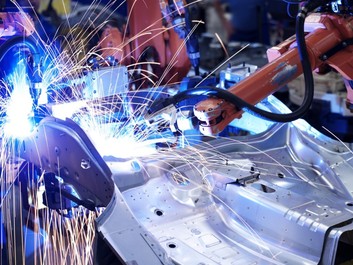
That has been a question on my mind ever since President Obama’s last State of the Union, which talked up signs of a turnaround in hiring and productivity in the U.S. manufacturing sector. I was also reminded of the "manufacturing comeback" at dinner while discussing aviation and manufacturing with a good friend (Jon) from the Detroit area who is actively trying to reinvent the market in Southeastern Michigan. He reminded me that as of late, national reporters have concluded that diminishing cost savings from overseas outsourcing, combined with some resurgence in homegrown innovation, was helping bring back jobs lost to China and other emerging markets years ago. I wonder how true this is and what it really means?
Clearly, a lot of influential people around the country – including GE CEO Jeffrey Immelt, who last year declared in Harvard Business Review that outsourcing is “quickly becoming mostly outdated as a business model for GE Appliances” – are bullish on the future of U.S. manufacturing. In technology media, there’s also plenty of enthusiasm around customization and NextGen manuafacturing
applications. Wired, for instance, had a story on an engineer using 3D printer to build a car. However, when one looks at aggregate data, it’s clear that the venture capitalists and private equity groups have been continuing their long-term shift away from hardware and deeper into all things software. But perhaps there is a new shift coming in 2013-2014 - especially in tough markets like Detroit.
To the extent VCs do like makers of things, it’s usually because the businesses are about 90% software driven and only at the end
assemble a box to make it easier for customers to access that software horsepower. On the other hand — except for a small group of top tier VCs — the venture business has not generated major returns over the past decade. And no one’s ever argued that venture investors have a lock on recognizing innovation or idea creation. Additionally, the venture industry is mostly clustered around Silicon Valley and the Northeast, with limited representation in the Midwest (Detroit and Chicago) and the South (Texas), which are significant hubs for manufacturing.
Personally, I’d like to see VCs put more cash into companies and ideas that make physical products and work with local entrepreneurs such as my buddy in Detroit. Seems there’s a strong business case as consumers tend to be more willing to exchange their cash for physical goods. While the value in the latest devices may be mostly software, I believe that people pay for the whole package, not just the ideas behind it! Also worth considering: The most valuable technology companies, such as Apple, are often known for designing beautiful gadgets, and not just the software that drives them.


 RSS Feed
RSS Feed
